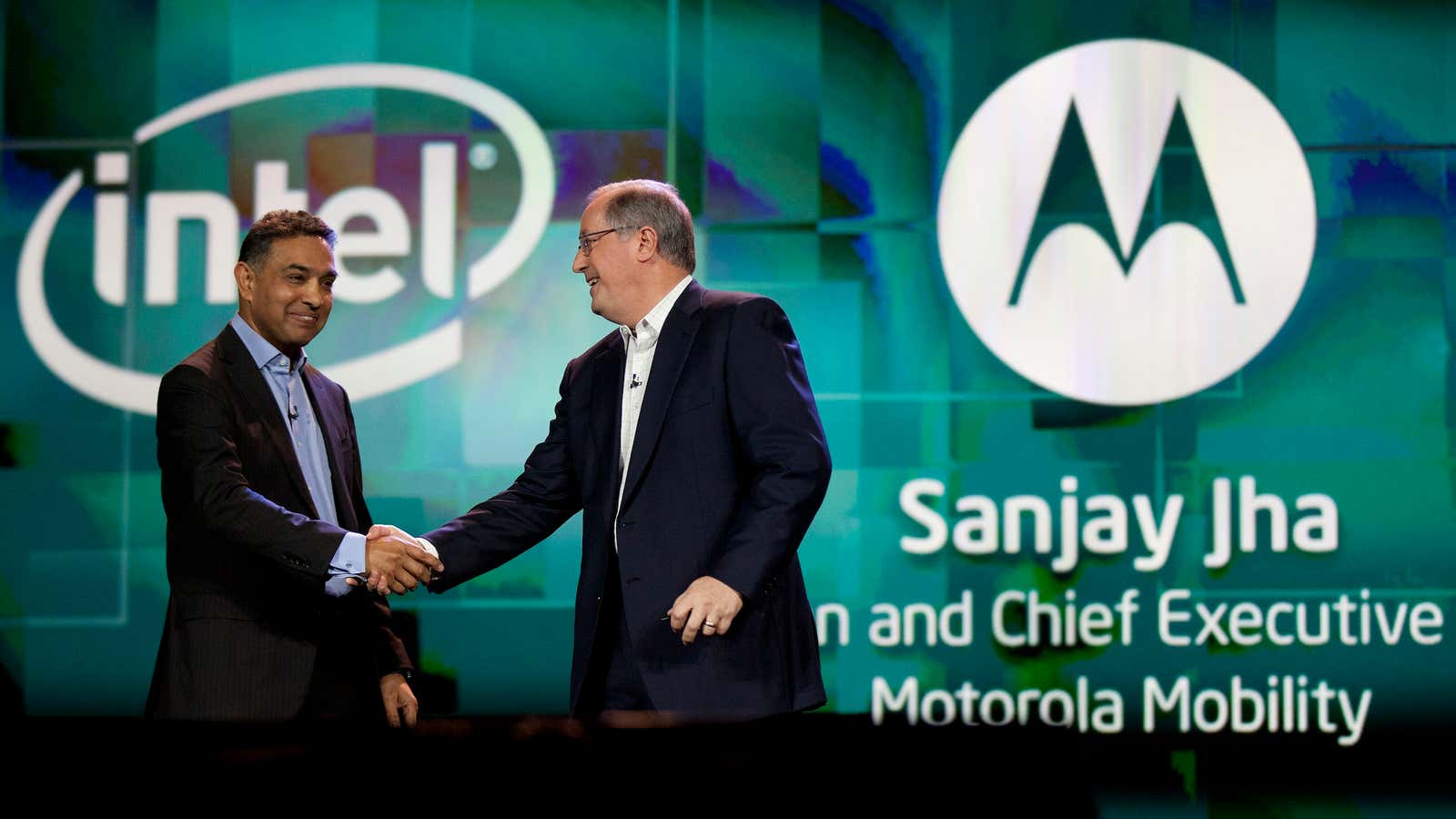Intel is showing how serious it is about tackling the big challenges it faces by actively considering outside candidates for the company’s next CEO. If one of them is selected, it would be the first time the world’s largest chip maker has gone with an outsider for its top job.
Some of the names being considered include former Motorola CEO Sanjay Jha and VMware CEO and former Intel executive Patrick Gelsinger, along with other internal and external candidates, according to people familiar with the matter. It’s early in the process, and the board is being methodical about the search, so it’s too early to say who the frontrunners are, the people added.
Intel has said the board hopes to have a replacement by the annual shareholder meeting on May 16. The new CEO would replace Paul Otellini, who is scheduled to retire in May. It’s the first time Intel is losing a CEO without having another one ready to take over. And in the past, Intel has always chosen from its own ranks to lead the company.
The semiconductor maker has stumbled in recent years, as it’s failed to make major inroads in selling chips for mobile devices while global PC sales have been declining. Intel has been on the losing side of that trend, reporting its first sales decline in 12 years in 2012. In the fourth quarter, net income fell by 27% and revenue dropped by 3%.
The outside CEO candidates can help Intel in different ways. While Intel’s chips are dominant in computers, it has almost none of the mobile chip market, a crucial area in which Intel needs to gain market share if it wants to stop its revenue from shrinking. Jha, who left Motorola after Google bought it in 2012, spent 14 years at mobile chip maker Qualcomm before joining Motorola in 2004. His experience in the mobile market is of obvious value to Intel, given its challenges.
Gelsinger could help Intel on another front, since VMware is a leading cloud software and services company. The explosion in mobile and tablet usage means a growing demand for servers in the “cloud,” where more computing power and online storage are required every day. Intel has a dominant position in the market for high-powered chips used in servers.
Whoever ends up being the new CEO needs to take Intel through its next chapter, where it capitalizes on the continuing growth in mobile and tablet devices. Intel has some promising power-efficient chip technology in the pipeline that could help it take some real market share.
Choosing an external candidate as its next CEO would send a clear signal to investors that Intel is serious about getting things moving.
